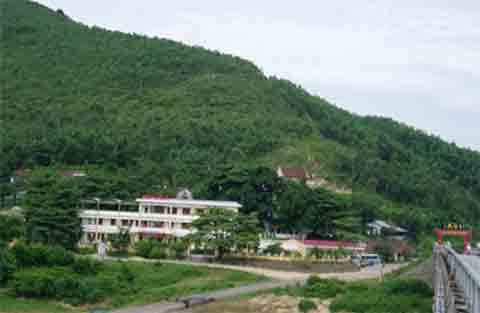You are beyond dumb. LOL Why do I have keep explaining this. I said again if you are a
non-recognizable nuclear weapon state that wants to join NPT so you can enjoy the benefit of international civil nuclear technology exchange, then you must disarm your nuclear arsenal. Otherwise, you stay out of NPT and keep your nuke. This is why India, Israel, and Pakistan never join NPT because they are not officially recognizable nuclear weapon state. If they are
recognizable nuclear weapon state, they can join NPT and follow the treaty obligation on cessation and disarmament to the fullest extend. However as I already said, due to your Uncle Sam's position on keeping nuclear, other nuclear powers are force to react and keep their nuke.
You want to blame us on disarmament? Are you a joke? Ask your Uncle Sam to reduce your nuclear weapon to a few hundred nuke like us first before we can talk, okay? LOL Last but not least, ask your Uncle Sam to have a no 1st use nuclear strike. This way, everyone can assure a non-nuclear weapon use. In fact, our position regarding nuclear policy is that. We want complete disarmament if everyone does the same, namely you the Great America of the World! LOL
Today, Israel is the world's sixth most powerful nuclear state, with a stockpile of more than 100 nuclear weapons and with the components and ability to build atomic, neutron and hydrogen bombs. Israel's nuclear program began and still operates under tight secrecy, but in the 1980s a series of revelations showed the crucial role played by foreign suppliers.
France launched Israel on the nuclear path in the late 1950s by building the Dimona reactor, which is still the source of Israel's plutonium--its main nuclear weapon fuel. The reactor's heavy water, essential to achieve a chain reaction, was supplied by Norway in 1959. In 1963, when the reactor started operation, the United States supplied four more tons of heavy water.
Israel got other nuclear help from the United States, which also supplied a small 5-megawatt (thermal) research reactor at Nahal Soreq. The reactor started in 1960, but cannot produce significant quantities of plutonium. Instead, the reactor offered an early training ground for Israeli nuclear technicians. Later in the 1960s, Israel was widely thought to have smuggled more than 100 kilograms of highly enriched uranium out of a nuclear materials plant in Pennsylvania.
France's contribution
Franco-Israeli nuclear cooperation is described in detail in the book "Les Deux Bombes" (1982) by French journalist Pierre Pean, who gained access to the official French files on Dimona. The book revealed that the Dimona's cooling circuits were built two to three times larger than necessary for the 26-megawatt reactor Dimona was supposed to be--proof that it had always been intended to make bomb quantities of plutonium. The book also revealed that French technicians had built a plutonium extraction plant at the same site. According to Pean, French nuclear assistance enabled Israel to produce enough plutonium for one bomb even before the 1967 Six Day War. France also gave Israel nuclear weapon design information.
In 1986, Francis Perrin, high commissioner of the French atomic energy agency from 1951 to 1970, was quoted in the press as saying that France and Israel had worked closely together for two years in the late 1950s to design an atom bomb. Perrin said that the United States had agreed that the French scientists who worked on the Manhattan Project could apply their knowledge at home provided they kept it secret. But then, Perrin said, "We considered we could give the secrets to Israel provided they kept it a secret themselves." He added: "We thought the Israeli bomb was aimed against the Americans, not to launch it against America but to say 'if you don't want to help us in a critical situation we will require you to help us, otherwise we will use our nuclear bombs.'"
British aid
Top secret British documents
[48][49] obtained by
BBC Newsnight show that Britain made hundreds of secret shipments of restricted materials to Israel in the 1950s and 1960s. These included specialist chemicals for reprocessing and samples of fissile material—
uranium-235 in 1959, and plutonium in 1966, as well as highly enriched
lithium-6, which is used to boost fission bombs and fuel hydrogen bombs.
[50] The investigation also showed that Britain shipped 20 tons of
heavy water directly to Israel in 1959 and 1960 to start up the
Dimona reactor.
[51] The transaction was made through a Norwegian front company called
Noratom, which took a 2% commission on the transaction. Britain was challenged about the heavy water deal at the International Atomic Energy Agency after it was exposed on Newsnight in 2005. British Foreign Minister
Kim Howells claimed this was a sale to
Norway. But a former
British intelligence officer who investigated the deal at the time confirmed that this was really a sale to Israel and the Noratom contract was just a charade.
[52] The
Foreign Office finally admitted in March 2006 that Britain knew the destination was Israel all along.
[53] Israel admits running the Dimona reactor with Norway's heavy water since 1963. French engineers who helped build Dimona say the Israelis were expert operators, so only a relatively small portion of the water was lost during the years since the reactor was first put into operation.
[54]








